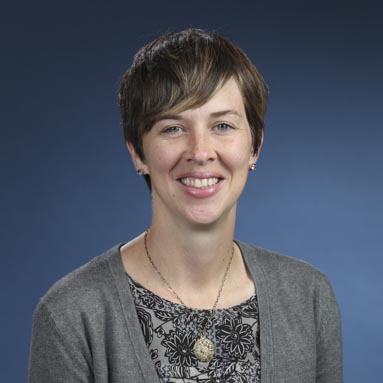At WPI, it’s important for students, faculty, and staff to approach each of our interactions with an honest interest in learning, a lack of judgment, and an openness to stories that may not be our own. That was the message that came out of last month’s Critical Conversations forum, “LGBTQIA+ Enhancing Community, Building Belonging.”
At the standing-room-only event hosted by the School of Arts and Sciences, moderator Lisa Stoddard, associate professor of teaching in the Global School, guided a lively discussion with WPI faculty, staff, students, and alumni.
Panelists Mia-Kay Fuller, assistant director for gender equity and sexuality; Al Green ’12, ministry director of the LGBT Asylum Task Force; civil engineering major Theron Howe ’23; Tony Laing, assistant vice president for diversity, equity, inclusion, and belonging; and Zoe Reidinger, associate teaching professor in the Department of Biomedical Engineering, agreed that people have generally become more comfortable expressing their queer identities on campus in recent years.

From left: Lisa Stoddard, Tony Laing, Mia-Kay Fuller, Zoe Reidinger, Al Green, and Theron Howe
Still, there are plenty of ways the WPI community can continue to improve, panelists said. More openly welcoming and actively accepting those in the LGBTQIAP+ community is not only the right thing to do—it could also have a genuine and positive impact on students’ well-being and mental health.
“I’ve encountered many faculty members who express support for me as an LGBTQ person, but a lot more could be done to help students feel seen and feel like they belong,” said Howe, who serves as a peer well-being ambassador and a SWEET Center fellow. In particular, he noted, students are hungry for connections with allies on campus beyond their “official” faculty mentors.
In addition to their teaching duties, Reidinger serves as a mentor both officially and unofficially for many WPI students. They sit on WPI’s newly created LGBTQIAP+ Advocacy Board, received the 2022 Denise Nicoletti Trustees’ Award for Service to the Community, and are a contributor in the book Queering STEM Culture in US Higher Education.
“About 50 percent of the work I do at WPI has nothing to do with teaching or research, but instead surrounds supporting students, faculty, and staff who are looking for ways to connect and belong,” Reidinger said.
Laing noted that a unique range of experiences makes up every individual’s identities. In particular, he pointed to the intersectionality of race and sexuality, noting that when there are general discussions about LGBTQIAP+ topics, race is often left out. To help prevent that omission, it’s important for organizations and programs to do an audit of their participants to determine whose voice is not being included.
For those reasons and more, members of the panel encouraged supportive members of the WPI community to actively identify themselves as allies by displaying visible symbols such as the Pride flag and by speaking out against hate speech and microaggressions when they occur. Doing so not only helps LGBTQIAP+ students trust that they are part of a caring community but also lightens the load for well-known allies and mentors like Reidinger.
“The question of identity and belonging is at the very center of this Critical Conversations forum, which aims to explore topics at the intersection of science, technology, society, and ethics,” said Jean King, the WPI Peterson Family Dean in the School of Arts and Sciences. “I hope people take away from this conversation an understanding of how important it is to stand up and say, ‘This is who I am.’”









